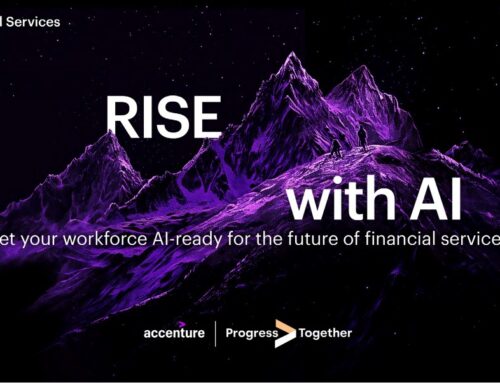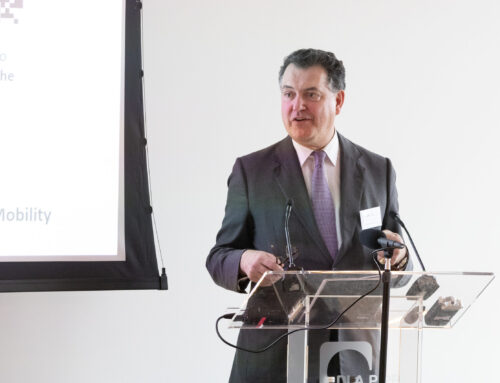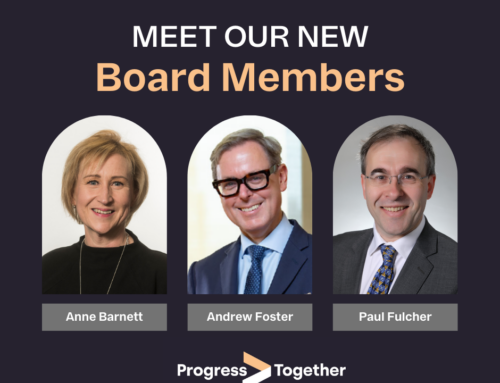This Supporter Recommends features Rowan Morrison, Co-Managing Director and Co-founder at Rationale.
As a female entrepreneur and founder I am extremely passionate about equality of opportunity. I’m also a member of the 93% club, a membership organisation which celebrates the impact that state school educated people (of which I am one) can have on all areas of society. I’m pleased that in recent years I’ve seen many financial services organisations beginning to take meaningful steps to address inequality in their sector. But there’s still a lot of work to be done.
On the topic of social mobility, many financial services firms are already seeing the opportunity offered by hiring employees from ‘non-traditional’ backgrounds. For example, Zurich Insurance is using its outreach program to diversify its workforce, via its Kickstart youth mentoring program into secondary schools. A report from McKinsey supports this: their research suggests that diverse companies outperform because they recruit from the widest talent pool.
Benefits of representation
This is vital – not only because it is the right thing to do as a business, but because doing so will benefit your people and your bottom line. When we work with senior leaders of financial services organisations on developing effective employee value propositions and employer brands, companies with an intentional and clear diversity initiative are overwhelmingly more appealing to talent, in terms of both recruitment and retention.
Greater representation signals to prospective talent that ideas and solutions are generated from a wider range of perspectives and experiences. A junior seeing someone who looks like them in the senior leadership team will come to work motivated and inspired, while different cultures and backgrounds bring energy to the team. If all companies are run by people with identical educations and networks, then how will anyone challenge, create or grow?
Some of the most interesting things I’ve read recently on this topic:
- The 2023 Social Mobility Foundation Index. The forward to this opens with a stat that made me stop in my tracks – that a child born in poverty has just a 1 in 8 chance of becoming a higher income earner as an adult. The report does a good job of celebrating businesses that are going above and beyond to improve social diversity, with financial services dominating the board. PwC ranked number one, with KPMG and Accenture firmly in the top 10.
- If you like stats and a good graph, this McKinsey article with links to a longer report is a cracking read that breaks down the benefits of boosting the ‘Social’ in ESG. One of the most interesting stats in the piece is that ‘those in the top quartile in terms of gender on executive teams were 25% more likely to earn above average profits than those in the bottom quarter.’ Even more compelling a reason to diversify companies is that when ethnic and social differences were included this shot up to 36%. What this piece does well is present recommendations for businesses on how to set about improving their social diversity. Key recommendations include adopting a hybrid working model, widening the recruitment net, monitoring your recruitment funnel and, finally, recruiting with a view to upskilling.
- Rationale’s own feature on ESG advises companies on how to avoid missteps when it comes to their ESG work, specifically on evolving expectations around success. Successful ESG work is, to use a cliche, a marathon not a sprint – sustainable change is critical in this space, which means complete change overnight is unlikely. In an age where companies are confronted with the delicate balance of not saying too little, but not saying too much, the piece explores our RAFT framework, which we believe are four critical steps to successfully implementing successful ESG frameworks. These include Risk-Informed Goal Setting, understanding Audience Expectations, Fearless Communication (with sure-footed messaging) and Track and Monitor Results. Check out the piece here.
- Mentorship is a great way to boost social mobility within a company. This Forbes piece by Kara Dennison is a great reminder of why and how mentoring works – and the best ways to get started. It touches on the different types of mentorship that exist, which also reminds me of the power of reverse mentorship. So many of our newer or more junior colleagues have incredible experiences and skills that I’d like to understand and learn. Skill swapping is a great way to build confidence and visibility in a big company.
Businesses with strong environmental, social and governance targets do better. Research supports this. And yet there’s so much more we can do when it comes to looking at the diversity within our own businesses and companies and supporting growth and mentorship. At Rationale, we’ll keep doing everything in our power to hire a diverse pool, while keeping the doors open for diversity at leadership level too. There’s more we can all do to level the playing field, so let’s get to it.




